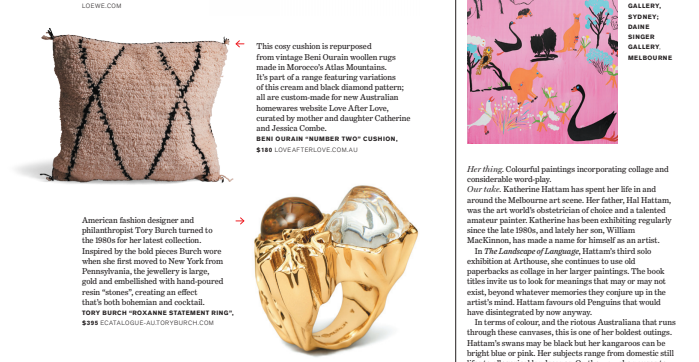
Permission to Roam
On Reading in Isolation

“If the body has to cope with confinement, then all the more reason to have developed a mind that knows how to roam.” – Jeanette Winterson
When I was ten, there was a girl in my class called Jackie. At lunchtimes, she would head to the school library and build a fortress of books around her. First, she piled them up like bricks, then, nesting herself between the walls would secure the rooftop overhead, eventually disappearing altogether. At the time her ritual disturbed me: Jackie, immuring herself from the world, the books an impenetrable bulwark. “Strange”. Yet now, I see the beauty in her behaviour – at least metaphorically. These books enclosed a space where she could feel free. It wasn’t the prison cell I thought it was, but a cabin thronging with voices and places, a portal through which she could roam.
Currently, our government mandates that we reduce all roaming to that which is ‘essential’. But this should not eliminate the verb altogether. The Webster’s definition of roam reads thus: “to travel purposefully unhindered through a wide area”. Among the synonyms for this behaviour are drift, meander, rove, hike, putter, mosey and saunter. To me, all of these words speak to a good day. A great day. A kind of freedom that we may not have physical access to, but to which we still have an imaginative master key.
These last few weeks I have been grieving the loss of physical spaces. So often, I garner my energy, focus and passion by shifting my surroundings. A café, a garden, a friend’s house. Physical spaces – rooms, suburbs, streets, parks – have a mnemonic quality. Emotions and experiences accrete in the surfaces of things. Places are palimpsests that project narrative. It’s no wonder I avoid my own home each time I go through heartbreak, retreating instead to spaces that feel very old or very new – an ancient page to swaddle in, a fresh page to write on. French philosopher Michel de Certeau elaborates this idea:
“Every day, they [stories] traverse and organize places; they select and link them together; they make sentences and itineraries out of them…stories thus carry out a labour that constantly transforms spaces into places”.
The ability to roam from place to place, narrative to narrative, is a gift – and one that we must forego for the time being. However, our minds can also be spaces turned places – cell matter turned geography. To ‘stay home’ physically need not mean the geography of our mind shrinks to scale.
Before COVID19 hit our world in a serious way, I had planned to travel to Ghana for three months to work with an organisation on women’s health and empowerment. Part heartbreak recovery, part longtime aspiration. When it became clear that I wouldn’t be going as planned, my brother Joseph dropped a wrapped copy of Yaa Gyasi’s 2016 novel Homegoing in my letterbox with a note that said: ‘To help you prepare for Ghana’. ‘Prepare’ was the operative word, but the note should have said: ‘To send you to Ghana’, because that’s precisely what the book did.
For the five days it took me to read this novel, I roamed the west coast of Ghana, crossed the Atlantic to the cotton plantations of Mississippi, to the shipyards of Baltimore and coal mines of Birmingham, to the jazz bars of Harlem and across country to Stanford California. A week prior, I’d read Jeanine Cumming’s American Dirt and travelled through South America up to the Mexico-United States border. This week I’m in the Middle East, via Colum McCann’s new novel, Apeirogon.
On days that I read I feel less confined. My body may be restless, but my mind has occupied different spaces and been given permission to roam – new landscapes passing through my mind like windows on a train. A pistachio shell split open. Jeanette Winterson’s words fit snugly within idea:
“Reading stills the body for a while, allowing rest without torpor and quiet without passivity. Reading is not a passive act. Engaged in the book, in company with the writer, the mind can roam where it will. Such freedom to roam reminds us that body and mind both need exercise and activity, and that neither the mind nor the body can cope with confinement. And if the body has to cope with confinement, then all the more reason to have developed a mind that knows how to roam.”
Left on its own, my mind burrows into itself. I ruminate, spend too long on my phone, my neurosis amplifies. Or, I’m left with a frustrated nothingness. But, the novel produces a vanishing self. In our hall of mirrors media-sphere my instinct is to fold into myself – my story, my feelings…the effect of this pandemic on my life. The my space is tempting, but often lacks. There is a tautology to it that pinches. It’s too singular. People are essentially plural; we have a full range of internal, imaginative possibilities at our disposal. There are side streets, byroads and laneways you can take yourself down to avoid the eight-land motorway ahead. But it depends on who (or what) is doing the driving.
Here is where the novel fits in – a hall pass for these times, a permission slip to roam. Or, as Jeanette Winterson puts it: “reading is a way though, a way in, a way out.”
by Claudia Ware




2 comments
Such a beautiful piece Claudia! Love the ‘geography of your mind’ and cannot wait to read what you write next. x
Catherine Therese
So lovely to putter through this piece. I look forward to more of Claudia’s wanderings.
Grace
Leave a comment
This site is protected by hCaptcha and the hCaptcha Privacy Policy and Terms of Service apply.